
Community Energy – Challenges and Solutions
Tuesday 1 April 2025
Community groups are taking the lead by putting people at the heart of their vision for a just energy transition, exploring options to develop community scale energy projects that benefit everyone in their area.
This year community energy has been a particular focus for four of our community groups who have successfully applied for grant funding from the Greater Southeast Net Zero Hub (GSENZH), via the Community Energy Fund. The grants are for Stage One Feasibility Studies, to explore which type of renewable energy project owned or controlled by the community, would be most suitable for the area and benefit the most people, working closely with an energy consultant. That includes projects such as; sustainable transport solutions, generating renewable energy through wind turbines, rooftop or ground mount solar PV, storing the energy in a community battery, developing a shared heat network, or making buildings and homes warmer and more energy efficient.

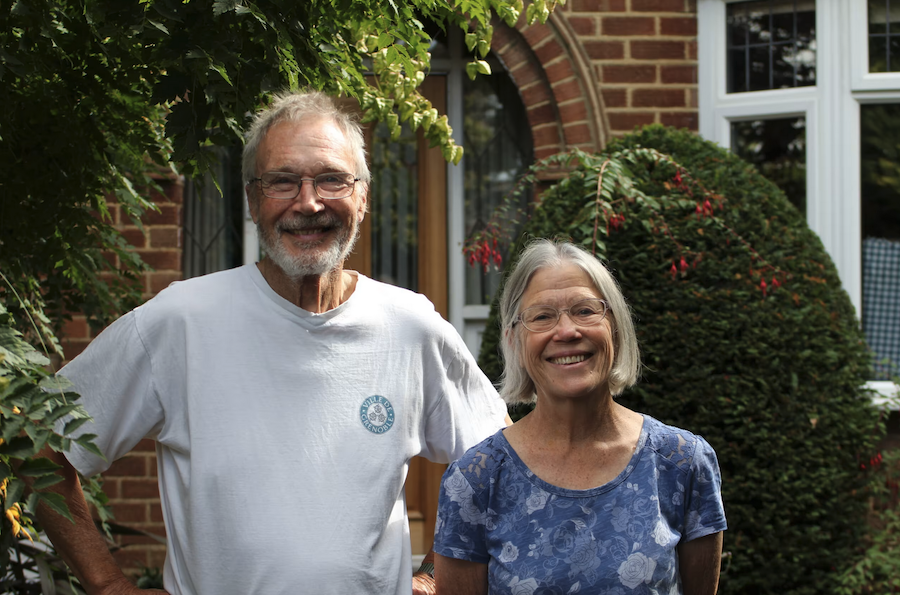
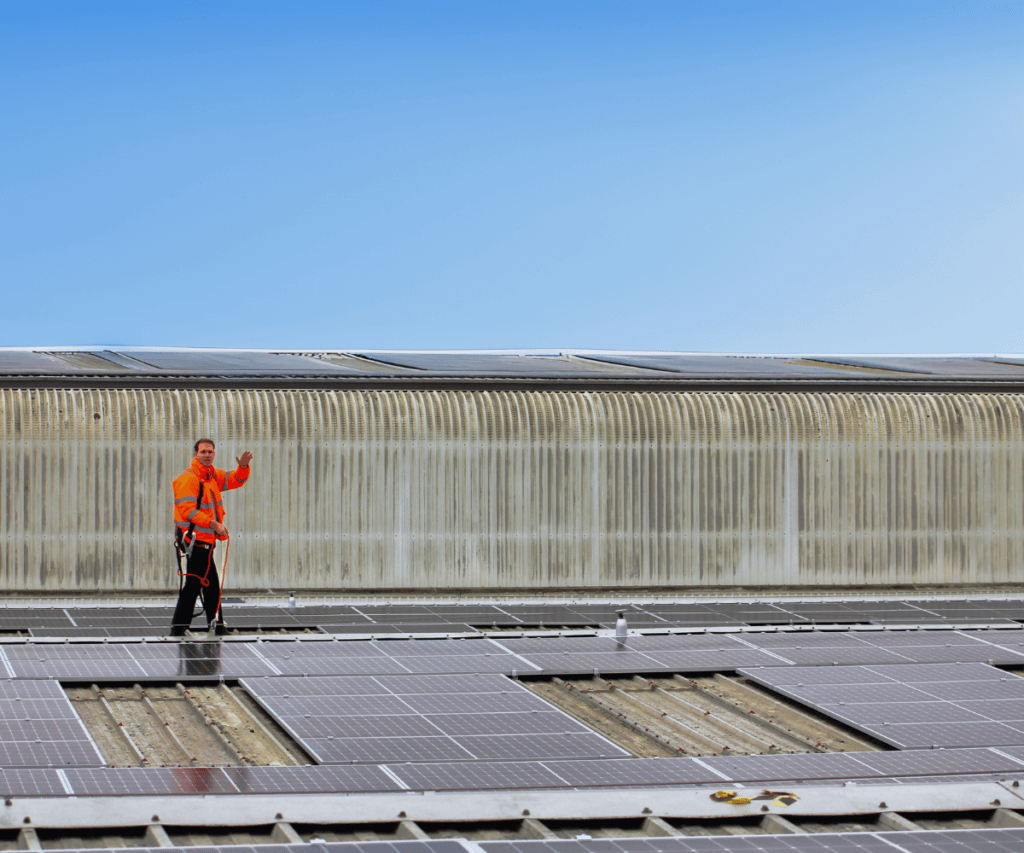
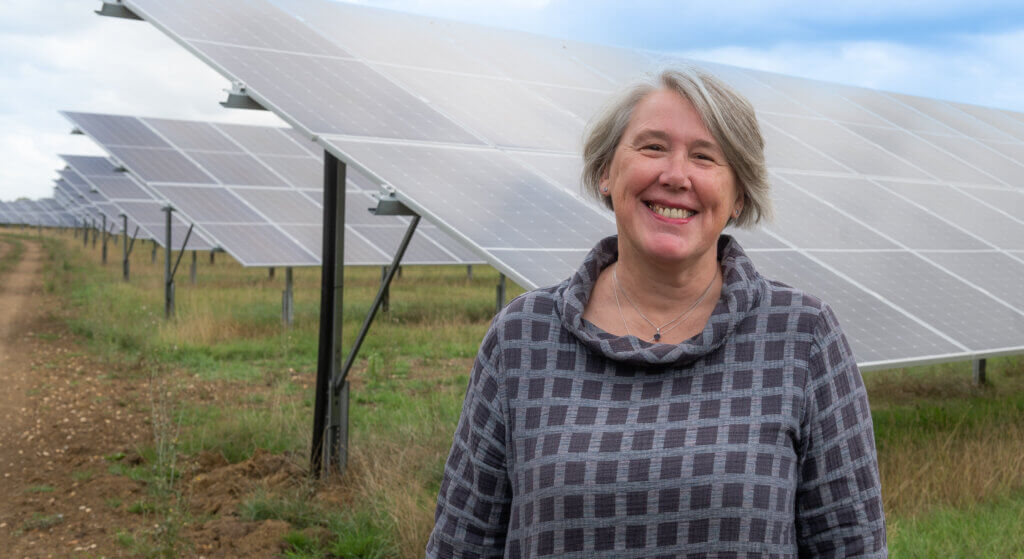
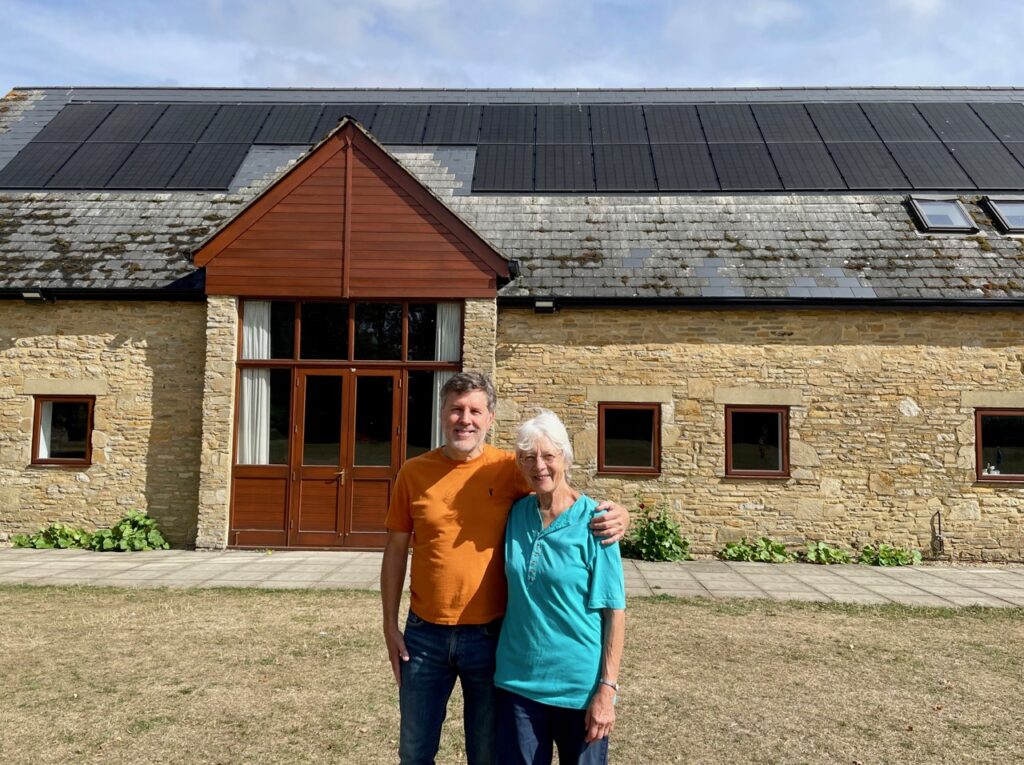
On Tuesday 1 April, Low Carbon Hub’s meeting room was filled with representatives from our community groups as they joined us for ‘Community Energy – Opportunities, Challenges and Solutions’, an action packed in-person event at Low Carbon Hub’s offices, with a quiz, presentations, shared lunch and community energy discussion.
With a nod to the auspicious 1 April date, we began our event with a fun Community Energy Quiz that got everyone thinking about where to find the Grid Edge, what the oldest form of renewable energy is, and just how many popular song titles feature a form of renewable energy!
With the ice broken, Low Carbon Hub CEO, Barbara Hammond, outlined our 10 Year Strategic Plan and described how it links to our wider community benefit programme; by increasing our solar installations and using the community benefit to help reduce fuel poverty in Oxfordshire.
Building support for the energy transition
One of the most vital aspects of building local support for the energy transition is engaging your community with clear, accessible information on what the changes will mean for ordinary households. Asking people to abandon their familiar gas or oil-fired boiler for a heat pump or connection to a shared heat network is a big challenge. In rural communities the problem can be amplified by the impact on the landscape made by wind turbines and ground mount solar installations.
A positive message is needed that resonates with the community, highlighting the potential cost benefits and reduced reliance on imported fossil fuels, that increased renewable energy generation can bring.
Engaging with local businesses and private landlords can play a key role in decarbonising the energy system by reducing the energy consumption of their premises and installing energy efficient heating.
The possibilities for community groups
Hearing from our community groups on how they are turning their ideas into action was inspiring and motivating. Each renewable energy project is unique to its local community, but the groups that presented shared a common aim; to ensure that all low carbon solutions benefit everyone and new technologies should be affordable for the community, especially for those most at risk of fuel poverty.
Heat Clanfield Limited – Angus Fraser
Clanfield is a village of around 900 residents in West Oxfordshire. Heat Clanfield grew out of an existing community group, One Planet Clanfield, to research and develop a community owned energy project in the area. Angus Fraser took us through their aims to help residents and local businesses understand how to use renewable energy for heating and hot water in their buildings, by providing access to accurate information on low carbon solutions.
They used their feasibility study funding to select Scene Connect as their consultants to carry out research into the suitability of renewable heating technologies, grid connection & community battery storage facilities. They shared the findings of the study at a recent open meeting with the community. The next step will be to incorporate the views of the community and apply for the next in-depth Stage Two funding that will outline further details such as planning permission.
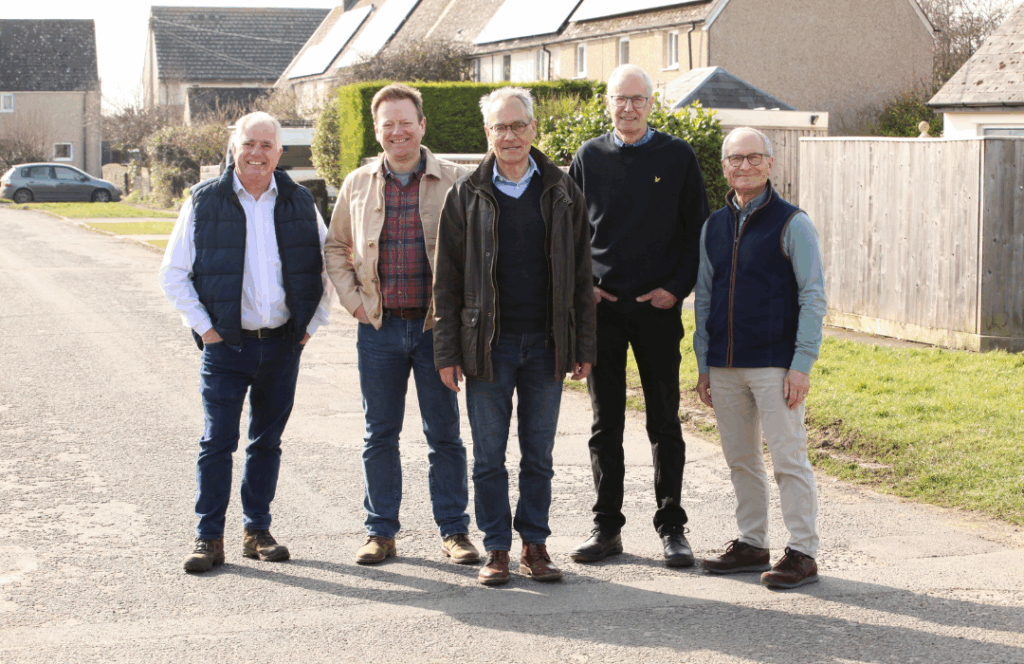
Challenges: Cost, time, local acceptance, planning permission, impact on landscape.
Hardwick Community Energy – Alastair Dick Cleland & Mark Hillyer
Hardwick Estate is a 900-acre country estate in South Oxfordshire which is in the process of transferring from a privately owned estate to a community trust. If successful it will be the first community run country estate in England. The estate consists of 27 tenanted cottages, several small businesses and 10 houseboats. Hardwick Community Energy formed to find ways to reduce energy demand on the Estate and look for opportunities to make the cottages and businesses warmer and more energy efficient.
They are also assessing the potential for both rooftop and ground mount solar PV to ensure the electricity needs of the estate and tenants can be met. They are hoping their feasibility study report will include a costed plan of the technical requirements needed to install a smart energy system that connects solar generation with the residents and businesses on the Estate, and advice on installing air source heat pumps and battery storage to manage peaks of electricity demand.
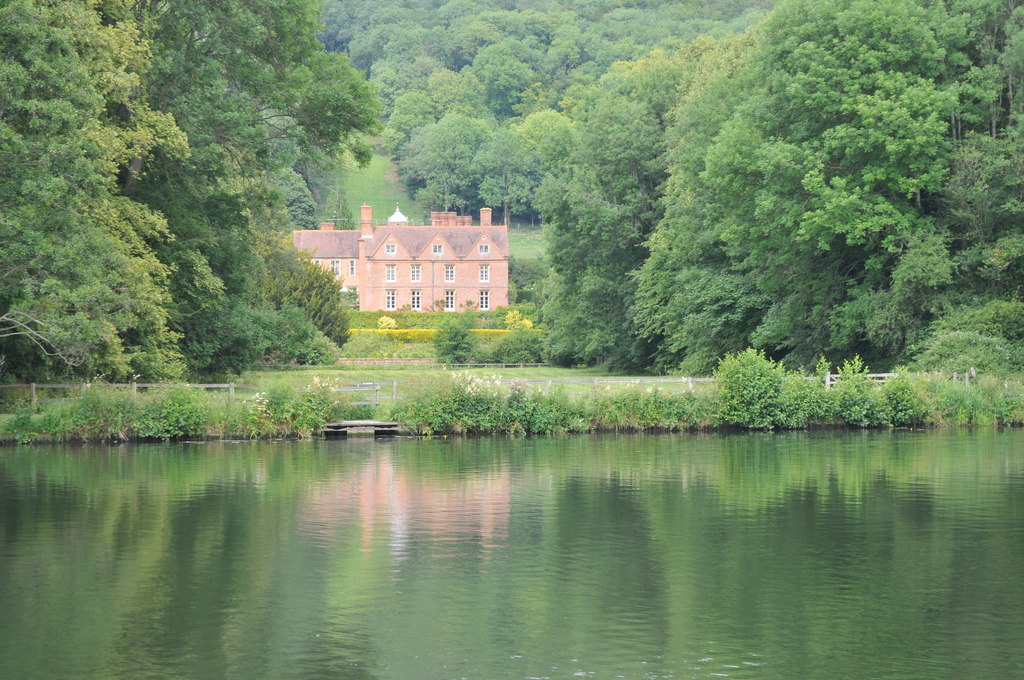
Challenges: community consensus. The estate community is divided over wind turbines, ground mount solar PV and introducing new technologies.
Phoenix Energy Community – Bill Finnegan & Wendy Duckham
Phoenix Energy Community became a Community Interest Company in 2024, joining together members of local environmental groups: Thame Green Living, Green Crendon, and Zero Carbon Haddenham. The three groups are working together, sharing knowledge and resources, with the aim of ensuring that all homes and businesses in their community are energy efficient and powered by renewable energy. They have developed a website and worked hard to engage the wider community, undertaking over 14 presentations to parish councils and community organisations in Oxfordshire and Buckinghamshire. Low Carbon Hub were delighted to fund the engagement aspect of the project through a large grant from our community grants programme.
They chose to work with Locogen as their consultants, who are investigating how a community battery could be used alongside new or existing large-scale renewable energy installations for community benefit. This could help to increase the amount of renewable energy available at peak times for use by the community or possibly be used to charge electric vehicles overnight.
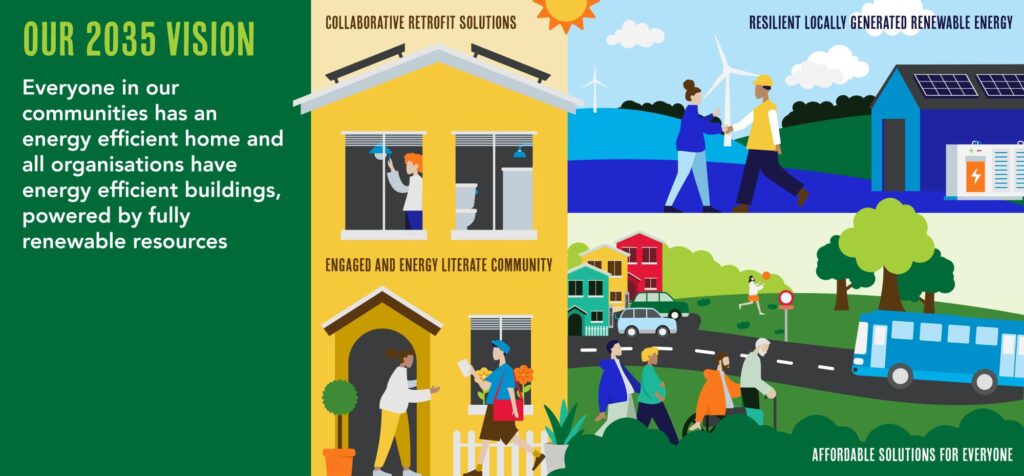
Greener Great Coxwell – Ken Hirons
Great Coxwell is a small, scenic village in the Vale of White Horse. Ken shared Greener Great Coxwell’s plans to create a community owned, sustainable and secure energy project that would provide heating and hot water to the whole village. The aim is for the system to replace existing boilers, help with fuel poverty, reduce carbon emissions and provide a revenue stream for community action.
They would like to generate renewable electricity for the parish from solar PV or a wind turbine and would like to supply homes in the village with heating that comes from a renewable source, such as a shared ambient loop network system that heats water to 70 degrees. They are exploring whether it would be possible for the solar energy generated to power the heat network so that the village receives the benefit of the power they generate. Both projects together could significantly reduce the local carbon footprint and reduce dependency on fossil fuels, but the group are facing a significant challenge from lack of grid capacity and the high cost of connection to the grid.
Challenges – expensive grid connection, opposition to solar PV in the village, concerns that wind turbine will not generate sufficient power, reduced local appetite for a further feasibility study into suitability of a shared ambient loop heat network.
Community energy can bring social and economic benefits to local communities, helping them to create a net zero energy system. It’s a testament to our community groups that they are so prepared to help each other by sharing knowledge and experience of the recurring challenges of providing clear information to the community, expensive grid connection, local acceptance of changes to the system, and raising funds to implement the changes.
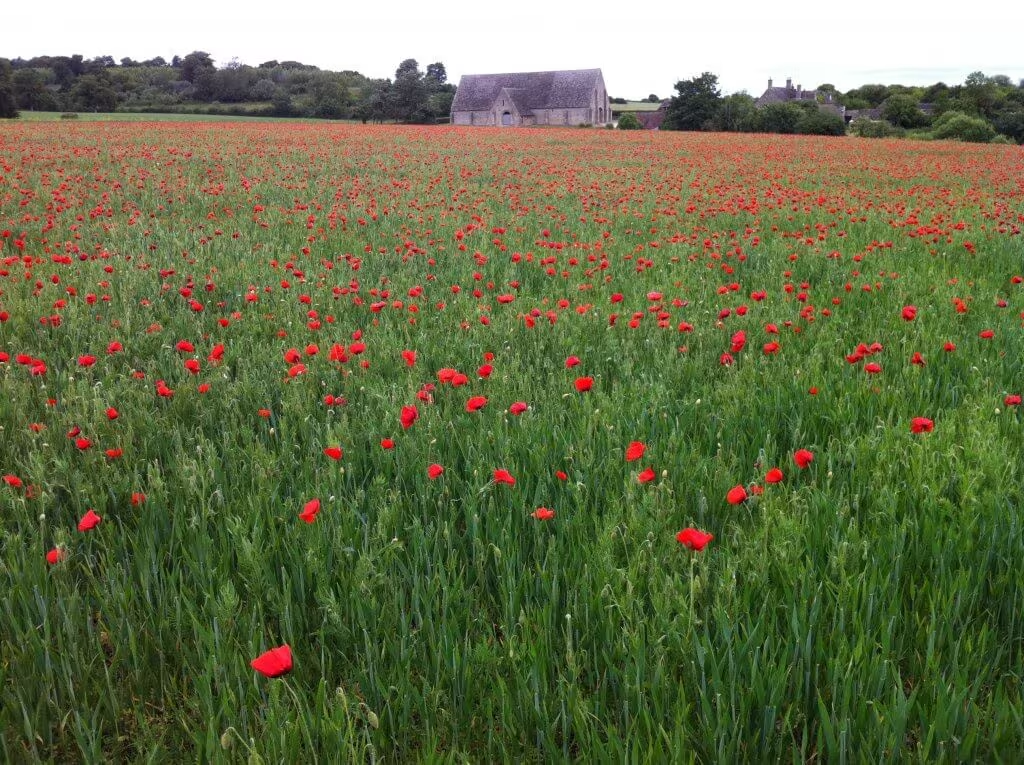
We look forward to supporting and sharing the progress of each project.
